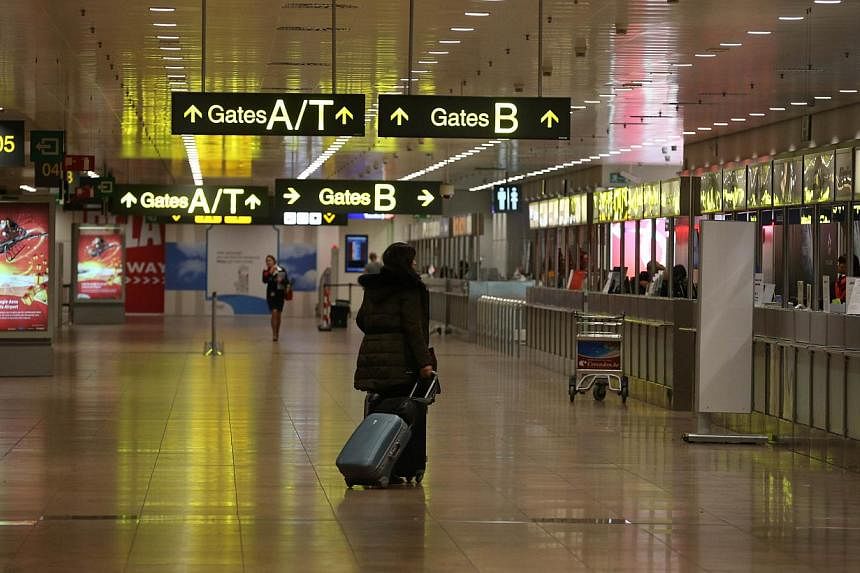BRUSSELS (AFP) - Belgium braced Monday for the biggest national strike in years after unions grounded all flights and severed international rail links in protest at the new government's austerity policies.
The strike that began at airports and train stations late Sunday also threatened to halt bus, tram and metro services as well as hit schools, businesses, factories and government offices throughout the country later Monday.
The protest is the climax of a union movement involving the Christian CSC, Socialist FGTB and liberal GGSLB that began last month with a march of more than 100,000 people and violent protests in the capital Brussels.
Unions went ahead with the strike after the right-of-centre government of Prime Minister Charles Michel refused to budge on plans to save 11 billion euros (S$18 billion) over five years.
French-speaking Michel, who at 38 is Belgium's youngest prime minister since 1840, heads a government coalition of three Flemish-speaking right-leaning parties and his own French-speaking liberals.
The formation of the government in October, five months after elections, was meant to bring some calm to a nation deeply divided between the richer Flanders and the poorer French-speaking Wallonia.
But Belgian unions oppose a decision by Michel's coalition government to scrap plans for a usually automatic cost-of-living raise next year. They also reject public sector cutbacks and plans to raise the retirement age from 65 to 67 from 2030.
The strike will affect not only Brussels but also French-speaking towns like Liege and Tournai as well as Flemish-speaking cities like the tourist hotspot of Bruges and the ports of Antwerp and Ostend.
'A REAL DISASTER'
The last national strike in Belgium was in 2012 against the government of socialist prime minister Elio di Rupo.
Flights to and from Belgium were grounded from late Sunday as air traffic controllers joined the nationwide strike.
No planes were due to land at or take off from airports in Brussels, Charleroi, Liege, Antwerp and Ostend for 24 hours from 2100 GMT Sunday (5am Monday Singapore time).
"It's a real disaster" for the airports and passengers, Jean-Jacques Cloquet, the managing director of Charleroi exclaimed on the RTBF news website, adding there would be a knock-on effect during the busy holiday period.
Eurostar rail services from Brussels to the British capital London and trains to the French capital Paris, Amsterdam in the Netherlands and German city of Cologne will also be halted through Monday and even into early Tuesday.
The rail companies announced that there were already cancellations late Sunday between many of these cities.
Belgian rail SNCB said domestic inter-city train service was cancelled from 2100 GMT on Sunday. Domestic underground train, bus and tram services throughout the country are also likely to be affected.
Traffic on the country's highways is set to be snarled as lorry drivers unfurled banners in recent days reading: "Lorry drivers, paralyse the country on December 15."
Picket lines organised by the three unions may form outside state-run firms, schools, government offices and industrial zones. The strike is also likely to affect post offices and rubbish collections, prisons and the courts.
Public radio will likely reduce programming to music except for the occasional news bulletin.
CSC leader Marie-Helene Ska refuted the idea that the unions wanted to bring down the government.
"The government was elected democratically. We do not challenge it at all," Ska said on Belgian television.
"What we want is to know where Belgium will be in five years on social matters and in terms of economic transition."

